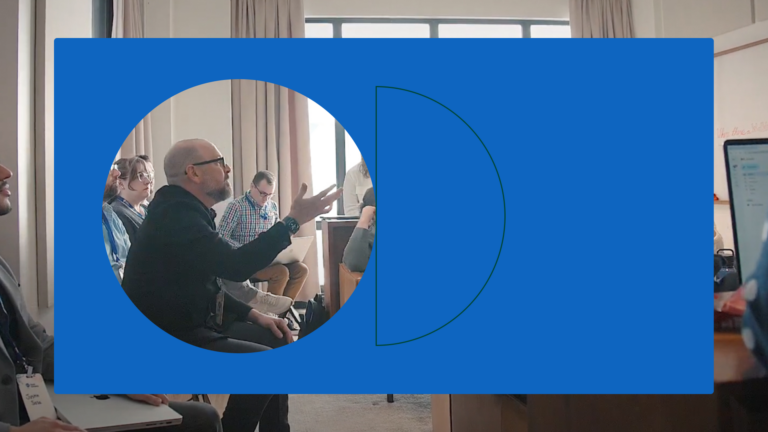To grow with integrity: Engage and honor your team

2018 continues to be a year of significant growth for Think Company, and the clichéd response to that is “it’s a good problem to have!”
I like to point out that while that is true, the word “problem” still sits at the center of that phrase—though I prefer to swap it out for “challenge.” It’s really a collection of different types of challenges: some known, some anticipated, and some still hiding in the shadows. However, I’m grateful for them as indicators of success. We’re facing them due to our demonstrated quality of service, subsequent demand in the marketplace, and strength of reputation and relationships—as opposed to the types of pressures that come from being overextended, owned by a conglomerate, publicly traded, etc.
The most powerful tool for tackling these challenges is perhaps the most obvious but underutilized: your team.
I’ve written extensively about the trap of succumbing to the dictatorial impulses that come with leadership responsibilities—and make no mistake, no matter how good you think you are at avoiding it, when the pressure ramps up you have to remain vigilant or you can regress pretty easily. It’s also quite easy to believe that you’re getting full benefit from (and adequately serving and representing) your team when you’re really not.
Recently, there were two powerful and instructive instances of our team both directly and indirectly steering us to make the right decision.
Engaging Your Team
Recently one of our newer hires was bold enough to honestly tell us that while our overall benefits package was really enticing and generous, our parental leave policy just didn’t seem in step with all of the other great stuff.
I love that we have a culture where folks feel safe and empowered to say these kinds of things, and love it even more that it was escalated, immediately prioritized (we were somewhat aware of this but it just hadn’t made it to the top of the list), and we had a new policy written up and announced in a matter of days (spearheaded of course by the inimitable Nora).
I could go on about why this is good for everyone and the company at large, but I think this note says it all.

I’m also happy to announce that in a nutshell, we:
- Increased leave to 12 weeks (from 8)
- Increased fully paid time off to 12 weeks (from 2 followed by 6 at 60% covered by Short Term Disability)
- Introduced a period of flexibility for returning to work
- Increased spousal and adoption leave by 1 week (plus the option to use additional PTO)
When you can act quickly on constructive feedback—which admittedly gets more difficult as the size of the organization grows—it can have a big impact.
Honoring Your Team
Not long after that, a big opportunity came up that was appealing because of its potential to help us achieve future business goals. However, after a lot of discussion and gathering of different viewpoints, we ultimately decided wasn’t in line with our core values (those have never been just for show).
This isn’t the first time that’s happened, but there was a bit of a revelation in the conversation we had this time. What we kept coming back to was that making a decision not in line with our values isn’t merely going against a document or an abstract principle; it’s an affront to the real people who keep showing up—even and especially when it’s hard—with excellence, kindness, honesty, collaboration, curiosity, and service.
One of my colleagues summarized it like this:
“If you go to work for {very large, public consulting company}, you’re very aware of their primary concerns and motivations, so if you’re asked (told?) to work under conditions like these, even if you don’t like it, you’re not surprised—it’s par for the course. But if you work at Think Company, you do so because the culture and the core values mean something to you… and us agreeing to these conditions would be a total record scratch for everyone who works here. Even if we elected to do this work , it’s hard to see how it could be successful (and how it wouldn’t end up poisoning the entire well)—it’s just not compatible with who we actually are.”
What determines who you actually are as a company? You can define values, as we did, but the reality is that you don’t create a culture; you simply encourage and support it. A culture is defined and given meaning by the lived experiences of the people within it.
And what about who you want to become as a company? We have specific targets for growing our business, reputation, and reach. Of course we will consider those targets when we’re making decisions. But we will also always consider decisions through the lens of who we actually are. I feel honored to work with a team that makes “who we are” such a challenging, worthy ideal to measure against.
Engage your team. Honor your team. Sometimes the outcome won’t help your short-term returns, but it’ll feel good where it counts.



